
Tenzin Wangdue shouted anti-China slogans in Dharamsala, India. He said Tibetans had to push harder for independence.
DHARAMSALA, India — “Long live the Dalai Lama!” is the most common cry on the streets here.
Even so, the 72-year-old monk’s refusal to call for independence from China more forcefully as it has cracked down on the protests in Tibet has sharpened disagreement with younger and more aggressive Tibetan exiles.
Tenzin Wangdue, who has spent the last 11 days shouting slogans, including some that the Dalai Lama would shun, is typical of the new generation. While not rejecting the Dalai Lama’s authority, he believes Tibetans have to push harder if they are going to get anywhere. “They’re not going to give total independence,” he said of China. “But I think there’s hope they’re going to accept genuine autonomy if we say we want total autonomy.”
Since March 10 the Dalai Lama has stuck to his “middle way” script and appeared remarkably affable, at least publicly, even as China accused him of masterminding the uprising and called him “a devil with a human face.”
He has repeatedly said he advocates only nonviolence, presses not for independence but a “preservation of Tibetan culture,” endorses China’s role as host of the Olympic Games in August and is happy to speak to Chinese authorities, including President Hu Jintao.
“I’m fully committed to eliminate negative feelings among Tibetans and fear, distrust among Chinese,” he said Thursday in his third meeting with reporters this week. Reminded of the latest slurs against him, he leaned back in his chair and howled with laughter. “As a Buddhist monk, whatever they call me, doesn’t matter.”
Yet, a handful of radical Tibetan exile groups have said angrily that the “middle way” has achieved nothing in nearly 30 years. They have called for an Olympic Games boycott, burned Chinese flags and refused to call off a march from here to Lhasa, Tibet’s capital, which he has called impractical in opposing a mighty state intent on using force.
So the question arises of whether the Dalai Lama, who has spent the last 49 years here in India and built one of the most powerful exile movements in the world, is out of touch with his own people. Or is this monk, regarded by his followers as a reincarnation of Buddha, the ultimate political pragmatist?
There is no clear answer. Whether his doggedly conciliatory posture will ever assuage China’s government, or whether his allies will intensify pressure on China on his behalf remains a mystery.
But a hint of his influence here bleeds through the often angry, inventive protests that have gone on nearly nonstop for over a week. For all the slogans of fury — “Free Tibet” and “Death to Hu Jintao” — China’s president, the most common is a call-and-response homage: “Long live the Dalai Lama.”
Nuns chant it. Scruffy young men with painted faces shout it. Indeed, half the town seems to have gone hoarse this week calling out his name. He remains revered.
Mr. Wangdue, 26, is representative of the foot soldiers of the Tibetan exile movement. Born here to refugee parents, he has never seen Tibet, but dreams of going there one day and coaching the first Tibetan soccer team. He will go back when there is freedom, he said, and though he has never farmed, he will become a farmer on the family’s ancestral land.
He was educated in Tibetan schools here, raised on a curriculum that emphasized Tibetan suffering and Chinese atrocities, and studied politics and sociology in Delhi University, in the Indian capital. Twice he was arrested for protesting in front of the Chinese Embassy there.
This week, he was shouting “Free Tibet!” up and down the hills. During the protests, several Chinese flags were burned. “I’m a supporter of the Dalai Lama,” he confessed. “But when I saw these demonstrations, the blood was boiling in me.”
The most explicit face-off here came this week when the Dalai Lama summoned the groups organizing the march to Lhasa. He told them they would risk not only alienating their Indian hosts (the government does not like refugees agitating against China on Indian soil), but also invite fatal fire from Chinese troops on the border.
He told reporters after the meeting that while he welcomed dissent, he felt compelled to ask the groups to be “practical.” They are after all the foot soldiers of his movement, and his appeal to them was a sign of how they present both opportunity and a headache for his movement.
“I have no authority, no power to say ‘Shut up!’ ” he said. “I’m always telling them: ‘You are fighting for our rights. But today we are almost a nation dying. This moment important is survival. Practical solution is necessary.’ ”But voices of Tibetans here in the seat of the government in exile made it plain that while they had reverence for the Dalai Lama’s leadership, they did not feel bound by his directives.
Tashi Phuntshok, 40, a resident of a dormitory for new refugees here, said he understood that the Dalai Lama’s political strategy was intended to spare more Tibetan lives. If he called for independence, Mr. Phuntshok said, there would be outright war. “His Holiness, he is kind-hearted,” Mr. Phuntshok explained.
“For us,” he said, “it should be full independence.”
Onpo Lobsang, rushing up the road on his way to pick up a banner for a demonstration, said he backed the march to Lhasa despite the Dalai Lama’s reservations. “Our goal is the same, we need both sides,” said Mr. Lobsang, 29, who came here with his parents at age 9. “He’s the supreme leader, but we don’t need to listen to everything he says. He is a Buddhist monk. We are common men.”
Tsering Dorje, 34, came out of an Internet cafe on the same road, having scoured the Web for the latest news inside Tibet. He regarded the “middle way” as still the soundest strategy, but said that China would have to respond favorably soon for Tibetans to keep faith in the concept. “It’s time for China to show whether it has the courage,” he said. “If China doesn’t change its stance, I will change my mind.”
Samdhong Rinpoche, the prime minister of the Tibetan government in exile, said he recognized the “energy and fire” of younger, more radical exiles, but dismissed their expectations.
“They have all lived in a world of dreams,” he said. “And they are driven by emotions.”
He maintained that his cause enjoyed greater prospects of success than ever before. His statement offered a window into at least the rationales of the Dalai Lama’s political circle.
Mr. Rinpoche, 69, also a monk, gave three reasons: first, that China would find it impossible to continue to suppress by force; second, that public opinion had become divided in China; and third, that his government’s demands for greater autonomy had widespread international support, which China, as an aspiring world power, could not ignore forever.
“If you talk about the long-term Tibet issue, I am very much hopeful,” he said. “I never live in dreams. I live in reality, and in the present.”
The Dalai Lama has flatly said that to call for independence would be to lose the support of world leaders, including that of his hosts in India.
The Dalai Lama and the government here have had talks with the Chinese government since 2002, most recently last summer. On Thursday, he said he was ready to talk again, but not in Beijing, unless there was “a concrete development” in government policies toward Tibet. He did not elaborate.
China has said it will talk only if he gives up on a claim of independence. The Dalai Lama has said repeatedly that he has. “One hundred times, thousand times I have repeated this,” he told reporters Thursday. “It is my mantra — we are not seeking independence.”




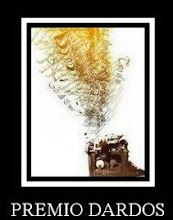











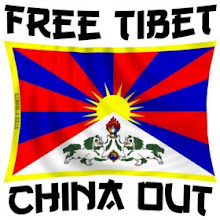










.jpg)


















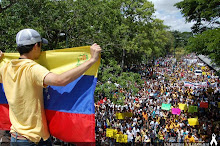





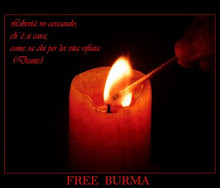

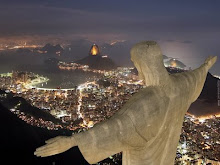
































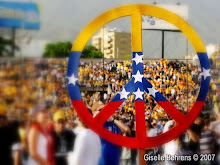

























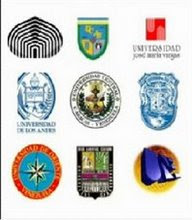


No hay comentarios:
Publicar un comentario